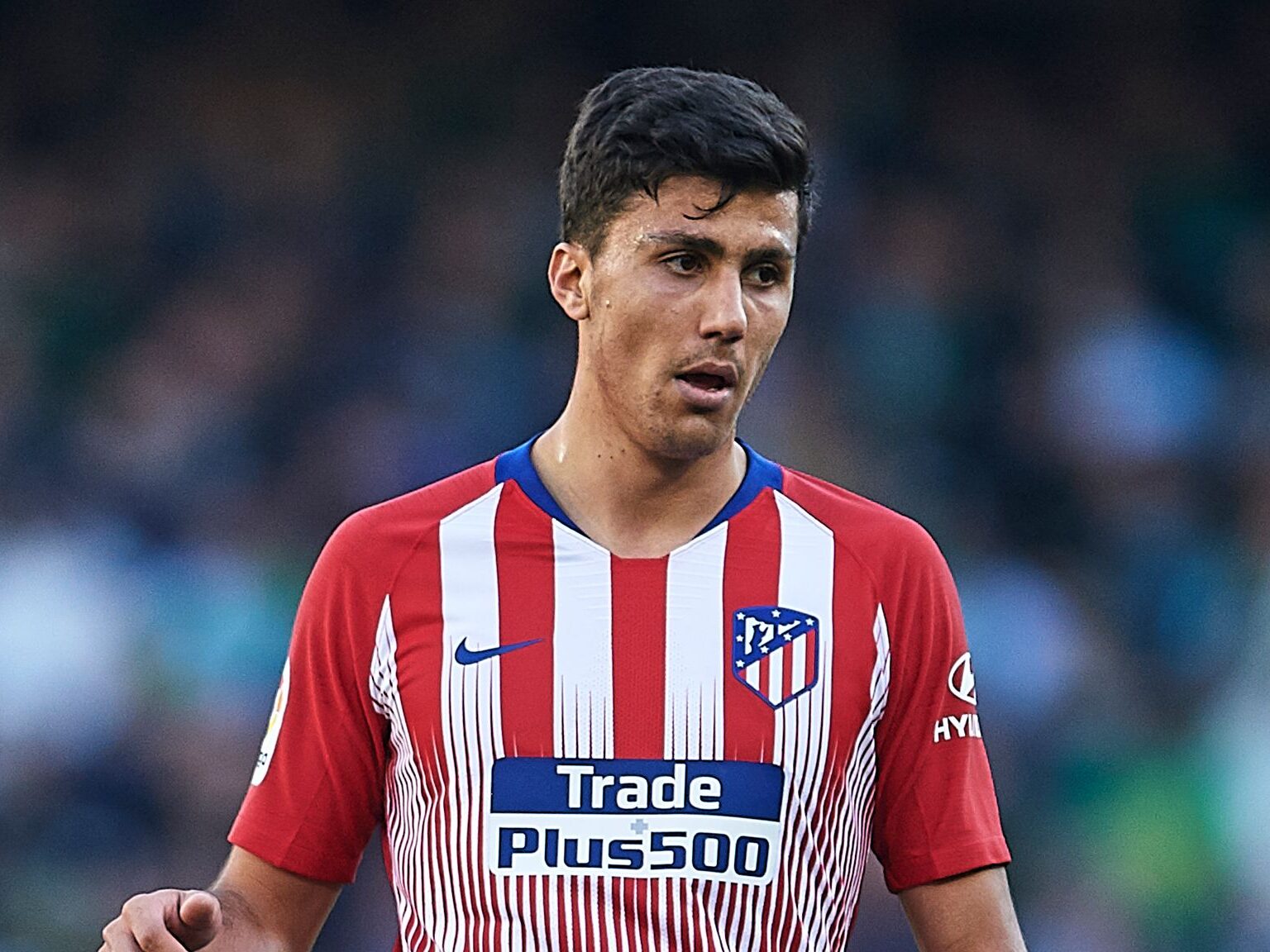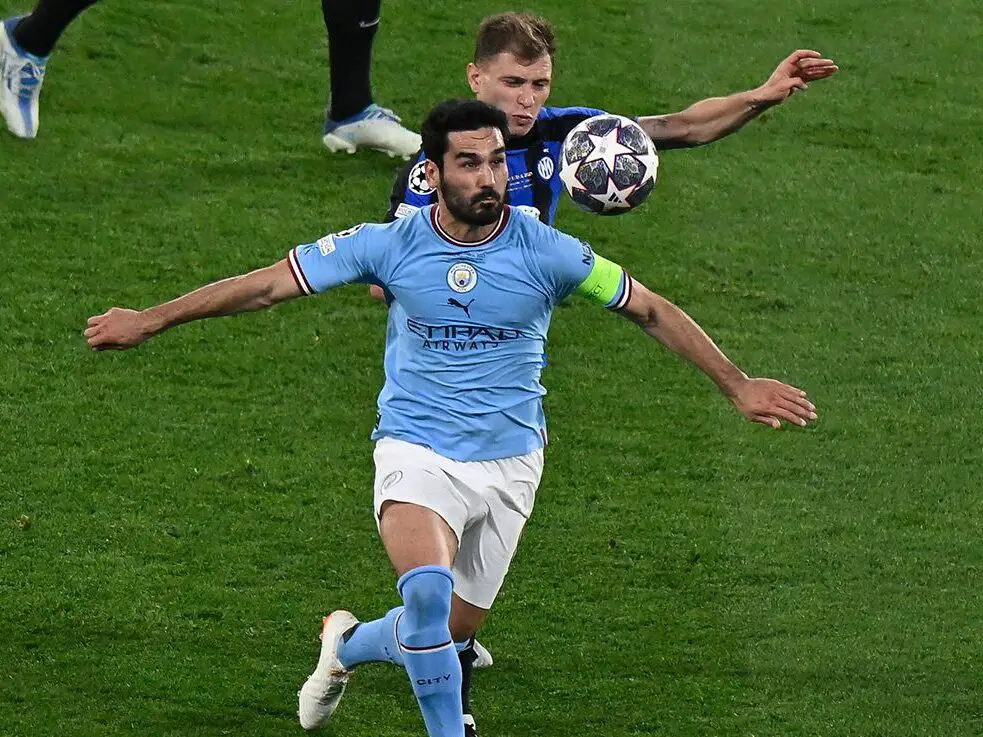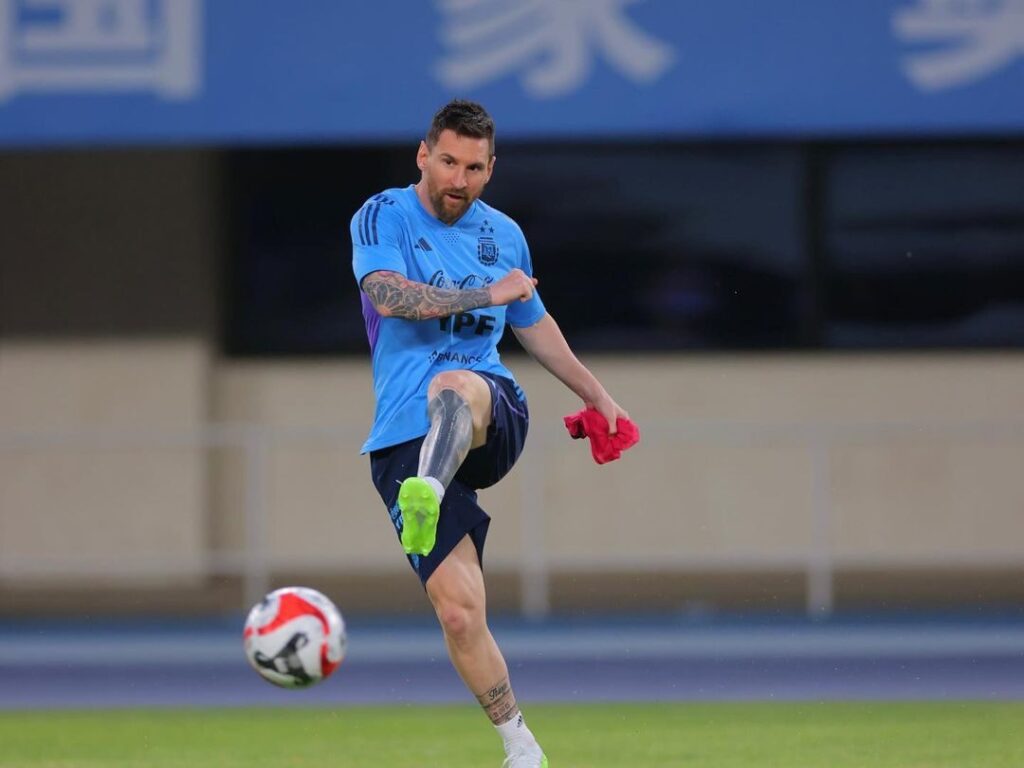Ballon d’Or 2022/23: The most prestigious individual trophy in football that top-level players dream of is the Ballon d’Or. It has been awarded every year since 1956, but it was canceled in 2020 due to the Covid-19 pandemic. From 2009 to 2016, it was given out in conjunction with the FIFA World Player Award.
Until 1995, the Ballon d’Or was only given to players who participated in a European football championship or who were from countries in Europe. This meant that great players like Diego Armando Maradona did not receive the award during their active playing careers.
Ballon d’Or 2022/23
The biggest individual prize in football is scheduled to be awarded on Monday, October 30, 2023. This year, there is a change in the criteria for the award. Previously, the Ballon d’Or was based on a player’s achievements from January to December of a given year, which was a bit confusing as it covered two half seasons. Now, the award will consider a typical full club season, from one summer to the next.
Now that the 2022/23 season has come to an end, it’s time to look at the top contenders for the highly coveted individual award in football.
10. Julian Alvarez (Manchester City)

Alvarez has been scoring a lot of goals for Man City this season, and only six Premier League players have scored more goals than him in all competitions. This shows that he is more than just a substitute player for the team, and he has a bright future ahead.
Right now, Alvarez is on track to become the most decorated footballer in the world for the 2022-23 season. This means he is almost certain to be nominated for the Ballon d’Or, which is a prestigious award in football.

Lewandowski might not have a good chance of winning the Ballon d’Or this time, but he did manage to maintain his impressive record of winning league titles by helping Barca reach the top of Spanish football again.
The fact that he achieved this despite having some periods of lower performance is a testament to his skill and talent, especially as he approaches his 35th birthday.

Is Rodri the best midfielder in the world? It seems like he may have earned that title now, as the Spanish international has consistently performed at a high level for Manchester City throughout the season.
Rodri has been incredibly reliable for City, starting in more games than any other outfield player with a total of 52 appearances in the 2022-23 season. He showcased his talent in the Champions League final by scoring the decisive goal, which ultimately led his team to victory.

Osimhen has secured his place in Napoli’s history by scoring a crucial goal that helped the team win their first Serie A title in 33 years. His exceptional season has made it clear that he could be the key player needed to achieve such success.
The attention now turns to whether Napoli can keep hold of this highly sought-after striker during the upcoming summer transfer window, as other clubs in Europe are eager to secure his services.

No matter which club Ilkay Gundogan plays for in the next season, they will have an exceptional player in their ranks. He has demonstrated his ability to perform at a top level and stay composed during critical moments when his team requires his contributions.

De Bruyne’s remarkable tally of thirty-two assists truly establishes him as the finest playmaker of his generation. His exceptional form throughout the season has played a vital role in propelling City to their recent success and achievements in the past two months.

Despite facing adversity from opposing fans in Spain this season, Vinicius’s performance has been outstanding. His consistent form has earned him a place among a select group of players considered classy at the global level.
Although he may not make it to the podium for the Ballon d’Or this time due to his team’s failure in the Champions League, Vinicius’s potential as a future winner of the award is highly regarded, particularly in Brazil.

Some individuals believe that Vinicius or one of Manchester City’s midfielders should be ranked ahead of Mbappe in the final Ballon d’Or rankings. However, as of now, let’s acknowledge Mbappe’s current position in third place.
Mbappe’s achievements include scoring over 50 goals for both his club and national team. Additionally, he has secured another league title and claimed the Golden Boot at the World Cup, where he notably scored a hat-trick in the final match.

Haaland had an exceptional season, setting numerous records along the way. Towards the end of May, it appeared almost certain that he would claim the top spot in the Ballon d’Or rankings by the end of the campaign.
However, a streak of scoring only one goal in his last eight matches means that he is likely to fall short in 2023. Nevertheless, his goal-scoring prowess played a significant role in Manchester City’s triumph in securing a treble victory.

Messi faced a challenging period of inconsistent form during the second half of the season, despite his best efforts. However, his iconic victory in the World Cup is likely to be sufficient to secure him another Ballon d’Or award.
Ballon d’Or History
The Ballon d’Or trophy was created in 1956 by Gabriel Hanot, the director of France Football Magazine and a key figure in the establishment of the European Cup. The first winner of the award was Stanley Matthews, an English player from Blackpool Football Club.
The winner of the Ballon d’Or has always been decided by a jury consisting of sports journalists from various countries. However, controversies have arisen regarding voting based on each publication’s editorial stance. In 2007, internet voting was introduced, involving accredited journalists from around the world. This gave the award a global reach similar to the FIFA World Player of the Year, leading to a joint agreement between the Amaury publishing group (owner of France Football) and FIFA. The award was renamed the FIFA Ballon d’Or.
This agreement brought about a significant change in the voting system, with selectors and captains from FIFA-recognized national federations participating in the vote. However, FIFA and France Football split in 2016, returning the voting responsibility solely to selected correspondents from each country.
Initially, the jury comprised journalists from 16 different nationalities, each representing UEFA member countries. Each journalist would select their top five European players, assigning points based on ranking. A player could only win the Ballon d’Or once, but this rule changed in 1959 due to Alfredo Di Stéfano’s exceptional performances for Real Madrid.
In the following years, the competition for the trophy became more intense. Luis Suárez of Spain won the Ballon d’Or in 1960, with Amancio Amaro also securing a place on the podium. In 1966, Bobby Charlton, a prominent English player who won the World Cup that year, claimed the title.
The 1970s witnessed the dominance of German and Dutch football. Teams like Borussia Mönchengladbach and FC Bayern Munich, led by exceptional players like Jupp Heynckes and Franz Beckenbauer, stood out. Dutch football, represented by the “Clockwork Orange” team coached by Rinus Michels and featuring Johan Cruyff, also had a strong presence. This led to a rivalry between Beckenbauer and Cruyff for the Ballon d’Or, with Beckenbauer being nominated 12 times and Cruyff winning the award three times, the most by any player.
In 1995, France Football announced that non-European players could be included in the award, as long as they played for a European club. Liberian George Weah, who had recently moved from Paris Saint-Germain to AC Milan, won the Ballon d’Or that year.
Typically, forwards and midfielders have been the main winners of the award. However, there have been exceptions where defenders and goalkeepers have prevailed, including Beckenbauer, Sammer, Fabio Cannavaro, and Lev Yashin, who is the only goalkeeper to have won the Ballon d’Or.
Ballon d’Or All Winners
A total of 43 footballers have won the Ballon d’Or at least once. Among them, 9 players have won it multiple times. These players include Lionel Messi, Cristiano Ronaldo, Marco Van Basten, Michel Platini, Johan Cruyff, Frank Beckenbauer, Ronaldo Nazario, Alfredo di Stéfano, Kevin Keegan, and Rummeniegge. Additionally, 25 players have won the award and appeared on the podium multiple times.
| Player (No of Awards) | Years |
|---|---|
| Lionel Messi (8) | 2009, 2010, 2011, 2012, 2015, 2019, 2021, 2023 |
| Cristiano Ronaldo (5) | 2008, 2013, 2014, 2016, 2017 |
| Michel Platini (3) | 1983, 1984, 1985 |
| Johan Cruyff (3) | 1971, 1973, 1974 |
| Marco Van Basten (3) | 1988, 1989, 1992 |
| Franz Beckenbauer (2) | 1972, 1976 |
| Ronaldo Nazario (2) | 1997, 2002 |
| Alfredo di Stefano (2) | 1957, 1959 |
| Kevin Keegan (2) | 1978, 1979 |
| Karl-Heinz Rummenigge (2) | 1980, 1981 |
| Luis Suarez | 1960 |
| Eusebio | 1965 |
| Bobby Charlton | 1966 |
| Raymond Kopa | 1958 |
| Gerd Muller | 1970 |
| Zinedine Zidane | 1998 |
| Gianni Rivera | 1969 |
| Ruud Gullit | 1987 |
| Lothar Matthaus | 1990 |
| Roberto Baggio | 1993 |
| Hristo Stoichkov | 1994 |
| Andriy Shevchenko | 2004 |
| George Best | 1968 |
| Allan Simonsen | 1977 |
| Ronaldinho | 2005 |
| Stanley Matthews | 1956 |
| Omar Sivori | 1961 |
| Josef Masopust | 1962 |
| Lev Yashin | 1963 |
| Denis Law | 1964 |
| Florian Albert | 1967 |
| Oleg Blojin | 1975 |
| Paolo Rossi | 1982 |
| Igor Belánov | 1986 |
| Jean Pierre Papin | 1991 |
| George Weah | 1995 |
| Mattias Sammer | 1996 |
| Rivaldo | 1999 |
| Luis Figo | 2000 |
| Owen | 2001 |
| Pavel Nedved | 2003 |
| Fabio Cannavaro | 2006 |
| Kaka | 2007 |
| Luka Modric | 2018 |
The standout players in the history of the Ballon d’Or are Messi and Cristiano Ronaldo. Messi has won the award 7 times, while Ronaldo has won it 5 times. Since Ronaldo joined Real Madrid in 2009, they have been in a competitive battle for the trophy. Despite their age, this rivalry is expected to continue for a while.
Alongside these two stars, there are other players who aspire to win the Ballon d’Or, such as Neymar, who is still determined to achieve the golden ball. There are also young talents like Mbappé and Haaland, who are already making a name for themselves and have the potential to become future stars.
Non-European Winners
In 1995, the rules for the Ballon d’Or changed to allow non-European players who played for European teams to win the trophy. Then, in 2007, the regulations were further modified to make any player from any team in the world eligible to win. This year, the number of journalists participating as jury increased to include 43 more journalists from different regions of the world, as long as their countries have participated in at least one World Cup.
The voters for the Ballon d’Or winner follow specific criteria. They consider the player’s individual and team achievements during the year, their skill and sportsmanship, their overall professional career, as well as their personality and charisma.
The restriction until 1995, which only allowed European players to win the Ballon d’Or, meant that some of the greatest footballers in history missed out on the award. Alfredo di Stéfano and Omar Sívori, who were Argentine but also held Spanish and Italian nationalities respectively, were able to win it. However, two other legendary players, Pelé and Maradona, were unable to win the trophy during their active careers. In recognition of their outstanding contributions to the game, France Football magazine symbolically awarded them each a Ballon d’Or.
One of the youngest players to ever win the award was Ronaldo Nazario, who achieved it at the age of 21 years and 3 months in 1997. He had an exceptional season with Inter Milan.
Teams with the Most Ballon d’Or
There are a few teams that have been highly successful in the Ballon d’Or history. Barcelona and Real Madrid have won the most awards, with 12 wins each. These clubs have produced some of the greatest players ever, like Johan Cruyff, Lionel Messi, and Cristiano Ronaldo.
There are also other clubs that have won multiple Ballon d’Or awards, such as Bayern Munich, Juventus, and AC Milan. These clubs have achieved great success in European football and have had many exceptional players in their teams. They are considered leading clubs in European football and continue to be influential forces in the game.
Ballon d’Or Wins by Country
Among the top countries with the most Ballon d’Or winners, France, Argentina, Germany, Netherlands, and Portugal have 7 winners each. Italy, Brazil, and England follow closely in second place with 5 winners each.
Here is a table of the top countries by number of Ballon d’Or wins:
| Country | Players | Wins |
|---|---|---|
| Argentina | 1 | 8 |
| France | 5 | 7 |
| Germany | 5 | 7 |
| Netherlands | 3 | 7 |
| Portugal | 3 | 7 |
| Italy | 5 | 5 |
| Brazil | 4 | 5 |
| England | 4 | 5 |
| Soviet Union | 3 | 3 |
| Spain | 2 | 3 |
| Bulgaria | 1 | 1 |
| Croatia | 1 | 1 |
| Czech Republic | 1 | 1 |
| Czechoslovakia | 1 | 1 |
| Denmark | 1 | 1 |
| Hungary | 1 | 1 |
| Liberia | 1 | 1 |
| Northern Ireland | 1 | 1 |
| Scotland | 1 | 1 |
| Ukraine | 1 | 1 |
Women’s Ballon d’Or
Before 2010, there was no separate category for women in the awards. In 2010, the Ballon d’Or and FIFA World Player awards merged to create the FIFA Ballon d’Or, which included both men’s and women’s categories. However, in 2016, FIFA and the French magazine split up, and as a result, there were no winners in the Women’s Ballon d’Or in that year and the following year. The Women’s Ballon d’Or was brought back in 2017 and has continued since then.
| Players | Year |
|---|---|
| Martha Vieira | 2010 |
| Abby Wambach | 2012 |
| Homare Sawa | 2011 |
| Nadine Argener | 2013 |
| Nadine Kebler | 2014 |
| Carli Loyd | 2015 |
| Ada Hegerberg | 2018 |
| Megan Rapinoe | 2019 |
| Alexia Putellas | 2021 |
| Alexia Putellas | 2022 |
| Aitana Bonmati | 2023 |
Women’s Ballon d’Or 2022/23
After winning the Women’s Ballon d’Or for two consecutive years, Alexia Putellas from Barcelona will not be able to defend her title in 2023. She suffered an ACL injury, which kept her out of most of the 2022-23 season.
Now, the question remains: Who will take her place and be recognized as the best women’s player in the world? The competition for the 2023 Women’s Ballon d’Or is wide open, and many talented players are vying for the prestigious award.
5. Patri Guijarro (Barcelona)
4. Fridolina Rolfo (Barcelona)
3. Kadidiatou Diani (Lyon)
2. Alex Popp (Wolfsburg)
1. Aitana Bonmati (Barcelona)
The New Winners
In 2016, to celebrate the 60th anniversary of the Ballon d’Or, France Football decided to review the awards given before 1995. Back then, only European players were considered for the award. They found that 12 out of the 39 Ballon d’Or awards during that time should have actually gone to South American players. This means that players like Pelé, Diego Maradona, Garrincha, Mario Kempes, and Romário were acknowledged as deserving winners in retrospect. However, it’s important to note that the original winners of the awards were not changed.
| Year | Original Winner | Alternative |
|---|---|---|
| 1958 | Kopa | Pele |
| 1959 | Di Stefano | Pele |
| 1960 | Luis Suarez | Pele |
| 1961 | Sivori | Pele |
| 1962 | Josef Masopust | Garrincha |
| 1963 | Lev Yashin | Pele |
| 1964 | Denis Law | Pele |
| 1970 | Ger Muller | Pele |
| 1978 | kevin keegan | Kempes |
| 1986 | Igor Belánov | Maradona |
| 1990 | Lothar Matthaus | Maradona |
| 1994 | Hristo Stoichkov | Romario |
They used the current scoring system to assess the results. The findings were quite surprising: Pelé, often referred to as ‘O Rei,’ would have emerged as the winner at least 7 times. This suggests that Pelé’s contributions and performances were highly regarded and recognized by many, even outside of Europe.
